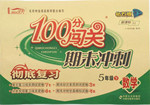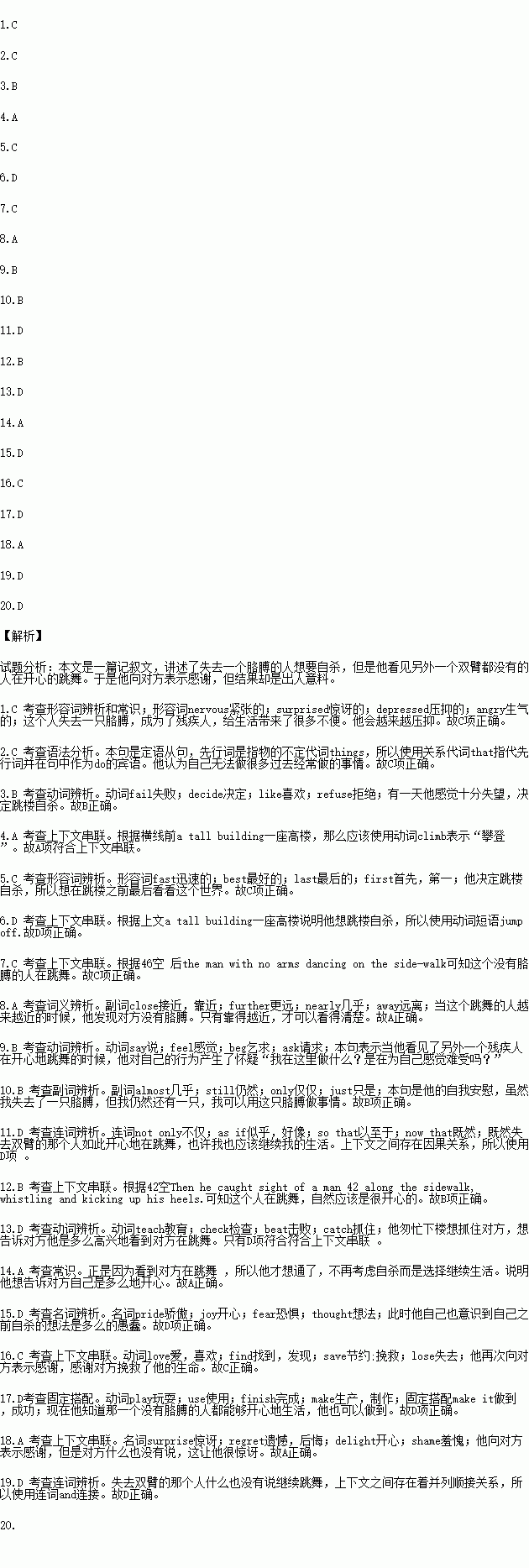题目内容
Once there was a man who had lost one of his arms in an accident. Day by day he got more and more , thinking of not being able to do lots of things he used to do. One day he got so disappointed that he to kill himself. He found a tall building and to the top of it. Standing on the edge of the building, he was looking down to have a look at the world before off. Then he caught sight of a man along the sidewalk, whistling and kicking up his heels. When the man came , he found that this man didn’t have any arms at all. He thought to himself, “What am I doing here? sorry for myself? I have one good arm to do things with. the man with no arms dancing on the side-walk is so , maybe I should go on with my life.” He hurried down to the man. He wanted to tell him how he was to see him and how stupid he was to have the of killing himself. He thanked him again for his life and now he knew that he could it with one arm since that guy could go on his life without arms.To his , the man with no arms said nothing began dancing and whistling again.The man with one arm felt even more and finally asked, “Can you tell me why you are so happy, please?”The man replied, “I’m not happy. My body itches (痒)!”
1.A. nervousB. surprised C. depressedD. angry
2.A. whenB. whetherC. thatD. if
3.A. failedB. decided C. likedD. refused
4.A. climbedB. turnedC. flewD. rose
5.A. fastB. best C. last D. first
6.A. shakingB. takingC. showingD. jumping
7.A. yellingB. drinkingC. dancingD. sleeping
8.A. closer B. furtherC. nearlyD. away
9.A. SayingB. FeelingC. BeggingD. Asking
10.A. almostB. stillC. onlyD. just
11.A. Not onlyB. As ifC. So thatD. Now that
12.A. strangeB. happy C. kindD. sad
13.A. teachB. checkC. beatD. catch
14.A. glad B. hardC. slowD. silly
15.A. prideB. joyC. fearD. thought
16.A. lovingB. findingC. savingD. losing
17.A. playB. useC. finishD. make
18.A. surprise B. regretC. delight D. shame
19.A. asB. soC. or D. and
20.A. dangerousB. comfortableC. pleasedD. curious
 100分闯关期末冲刺系列答案
100分闯关期末冲刺系列答案 名校联盟快乐课堂系列答案
名校联盟快乐课堂系列答案
